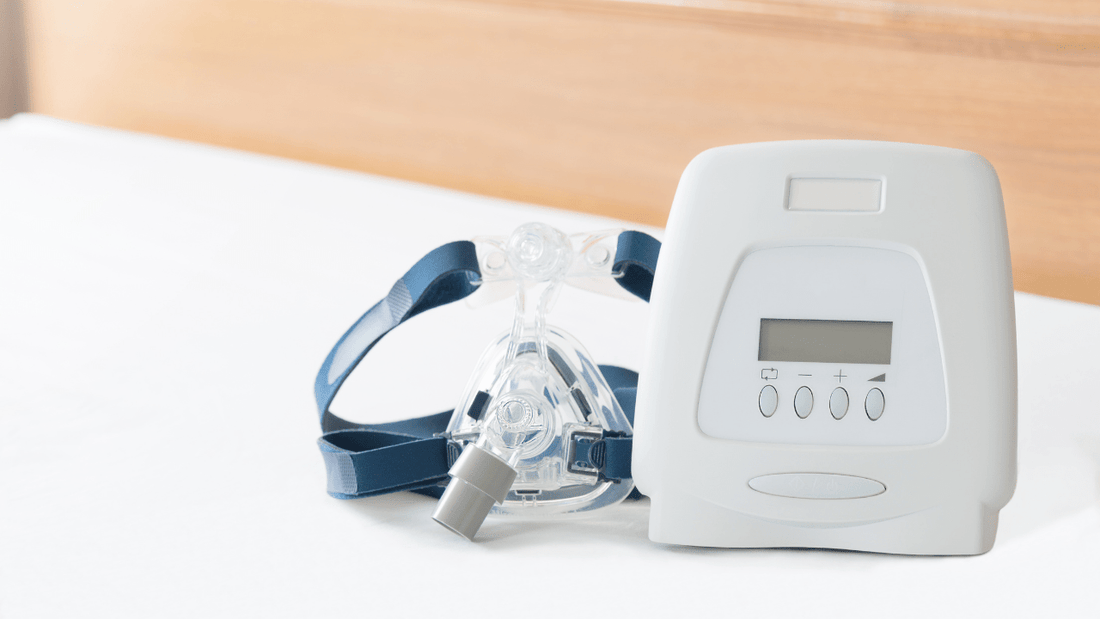
Can I Use a CPAP Without Water?
Share
A CPAP machine (Continuous Positive Airway Pressure) is a crucial device for individuals managing obstructive sleep apnea. These machines help maintain open airways during sleep, often using a CPAP humidifier to add moisture to the air. However, a common question arises: Can I use a CPAP without water? Let’s explore this topic in detail, covering the importance of water, the types of water to use, and alternatives when water isn’t available.
Why Does a CPAP Need Water?
A CPAP humidifier enhances the therapy experience by preventing dryness and irritation in your airways. This feature is particularly important for those using a CPAP mask, as the constant airflow can cause nasal dryness, sore throat, or even nosebleeds.
When the humidifier is filled with water, it delivers moist air through the sleep apnea machine, providing comfort and reducing potential side effects. Using the machine without water is possible, but it can compromise comfort and lead to dry or irritated airways.
Can You Use a CPAP Without Water?
Yes, you can use a CPAP machine without water, especially if the humidifier feature is optional. Some users opt to disable the humidifier entirely, particularly if they live in a humid climate where additional moisture isn’t necessary. However, skipping the water may cause discomfort, especially in dry or cold environments.
What Kind of Water Should You Use in a CPAP?
When using a CPAP humidifier, the type of water matters. Distilled water for CPAP machines is the gold standard because it’s free from impurities, minerals, and chemicals that can damage the machine or lead to health issues.
- Why distilled water in CPAP? Distilled water prevents mineral buildup in the humidifier, extending the life of the device and ensuring clean, safe moisture delivery.
- Can you use tap water in a CPAP? While convenient, tap water contains minerals and contaminants that can leave deposits in the humidifier or potentially irritate your airways.
- Can you use purified water in a CPAP machine? Purified water is better than tap water but may still contain trace minerals.
- Can you use bottled water in a CPAP machine? Bottled water, including spring water or smart water, isn’t ideal as it often contains minerals that could cause scaling in the humidifier.
Alternatives When You Run Out of Distilled Water
If you’re traveling or unexpectedly run out of distilled water, temporary alternatives can suffice:
- Can I use tap water in my CPAP? For one night, tap water might be okay, but it’s not recommended for regular use.
- Can I use bottled water in my CPAP for one night? Yes, bottled water can be a short-term solution, but ensure it’s low in minerals.
- Can I use spring water in my CPAP? Spring water is also a short-term option but can leave residue in the humidifier.
If you rely on your CPAP while traveling, consider carrying small bottles of distilled water to avoid potential complications. Traveling with CPAP distilled water ensures that you have the correct water type wherever you go.
How to Make Distilled Water for CPAP
If distilled water is unavailable, you can create it at home. Boil water and collect the steam as it condenses; this is the distilled water. While this method can work in a pinch, purchasing distilled water is generally more practical and cost-effective.
What Happens If You Use the Wrong Water?
Using improper water in a CPAP machine water chamber can cause:
- Mineral buildup: Tap or bottled water often contains minerals that can deposit in the humidifier, reducing efficiency and increasing cleaning frequency.
- Health risks: Impurities or chemicals in the water could potentially irritate your airways.
- Damage to the machine: Residue from non-distilled water can lead to corrosion or reduced functionality.
CPAP Models and Water Usage
Modern ResMed CPAP machines, such as the ResMed AirSense 10 and AirSense 11, include user-friendly humidifiers. They’re designed to perform best with distilled water and have settings to accommodate user preferences for humidity levels.
- Can I use ResMed CPAP without water? Yes, you can disable the humidifier in these machines, but consider the trade-off in comfort.
- CPAP machine water chambers in these models are easy to fill and clean, making them compatible with distilled water for optimal performance.
Managing Mouth Breathers and Dryness
Mouth breathers may face additional challenges with dryness when using a CPAP without water. Selecting a CPAP mask for mouth breathers or using heated humidification can alleviate these issues. Some users even add chin straps or mouth tape to improve comfort and prevent mouth leaks.
CPAP and Long-Term Comfort
Comfort is essential for maintaining compliance with CPAP therapy. Using the right water type in the CPAP humidifier enhances your therapy experience by reducing irritation and ensuring the machine operates efficiently. While skipping water is an option, most users find it less comfortable and effective.
Does Distilled Alkaline Water Work?
Some people wonder if they can use distilled alkaline water CPAP solutions. While alkaline water is safe for drinking, it may leave mineral residue in your humidifier. Stick with plain distilled water to avoid complications.
Key Takeaways
- Can I use CPAP without water? Yes, but it may lead to discomfort, especially in dry environments.
- What kind of water for CPAP? Always use distilled water for the best results.
- Ran out of distilled water for CPAP? Use purified or bottled water as a temporary solution, but switch back to distilled as soon as possible.
Understanding the role of CPAP water ensures a more effective and comfortable therapy experience. Whether you’re at home or traveling, proper water usage helps protect your sleep apnea machine, enhance your sleep quality, and support your overall health.
